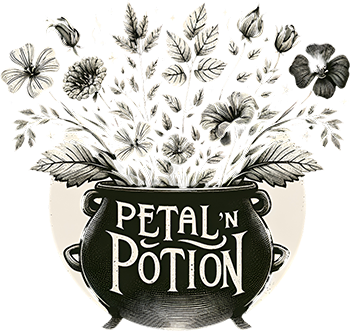V a l e r i a n R o o t
Valerian root (Valeriana officinalis) is a perennial herb native to Europe and parts of Asia.
It has been used for centuries in traditional medicine, primarily for its sedative properties.
Valerian root is commonly used to promote relaxation, improve sleep quality, and alleviate anxiety.
Benefits
- Improves Sleep: Promotes relaxation and improves sleep quality, often used as a natural remedy for insomnia.
- Anxiety Relief: Helps reduce symptoms of anxiety and stress.
- Muscle Relaxation: Acts as a muscle relaxant, relieving tension and cramps.
- Menstrual Health: Alleviates menstrual cramps and discomfort.
- Digestive Health: Eases digestive issues such as stomach cramps and irritable bowel syndrome (IBS).
- Pain Relief: Provides analgesic effects, helping to alleviate pain from conditions like headaches and muscle pain.
- Reduces Restlessness: Calms the nervous system, reducing restlessness and agitation.
- Cardiovascular Health: May support heart health by lowering blood pressure and reducing palpitations.
- Antioxidant Properties: Provides antioxidants that protect cells from oxidative stress and damage.
- Supports Mental Health: Contributes to overall mental well-being and emotional balance.
Active Compounds
- Valerenic Acid: One of the primary active compounds responsible for valerian’s sedative and anxiolytic effects.
- Iridoids (including Valepotriates): Contribute to the plant’s calming and muscle-relaxing properties.
- Flavonoids: Provide antioxidant protection and support overall health.
- GABA (Gamma-Aminobutyric Acid): Enhances levels of this neurotransmitter in the brain, which helps reduce anxiety and promote relaxation.
- Essential Oils (including Bornyl Acetate): Offer additional calming and soothing effects.
Who Should Avoid This
- Individuals with Allergies: Those allergic to valerian or related plants should avoid it.
- Pregnant and Nursing Women: Consult a healthcare provider before use, especially in large amounts.
- Individuals with Liver Conditions: Use caution due to potential adverse effects on liver health.
- Individuals on Medication: Particularly those taking sedatives, antidepressants, or anti-seizure drugs should consult a healthcare provider to avoid interactions.
- Children: Consult a healthcare provider before giving valerian root in medicinal doses to young children.
Warnings
While valerian root offers numerous health benefits, some precautions and potential side effects should be considered:
- Allergic Reactions: Can cause allergic reactions in some individuals.
- Drowsiness: May cause drowsiness; avoid operating heavy machinery or driving after use.
- Gastrointestinal Issues: May cause stomach upset, headache, or dizziness in some individuals.
- Pregnancy and Breastfeeding: Consult a healthcare provider before use, as high doses may not be safe.
- Liver Health: Use caution in individuals with liver conditions; consult a healthcare provider.
- Interactions with Medications: May interact with certain medications, including sedatives, antidepressants, and anti-seizure drugs.
Usage Guidelines
Valerian root can be used both short-term and long-term, depending on the condition being treated. For acute issues such as improving sleep or relieving anxiety, it is typically used until symptoms improve. For ongoing benefits such as muscle relaxation, cardiovascular support, or general wellness, longer-term use
